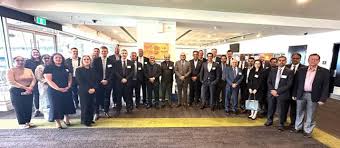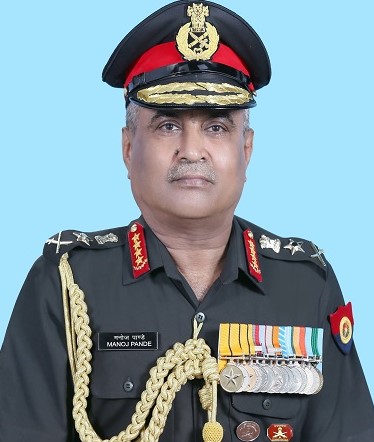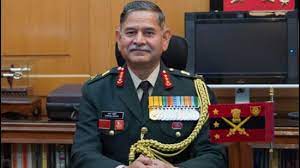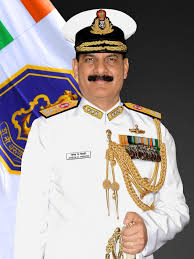Australia is an important trading partner of India in Oceania region with merchandise trade between India and Australia reaching around 24 billion USD in 2023-24, signaling significant potential for further growth.
The Joint Committee Meeting serves as a vital platform for both nations to further strengthening trade ties and exploring new opportunities for bilateral economic cooperation in areas such as trade facilitation, investment promotion, as well as co-operation in other areas including support for technology.
An Indian delegation led by Commerce Secretary Shri Sunil Barthwal had a very constructive and productive discussions on various trade and prospective investment related issues with the Australian delegation led by Depute Secretary Shri George Mina from the Department of Foreign Affairs and Trade (DFAT) in Canberra as well as the businesses in Sydney and Melbourne for deepening the existing economic relations between the two democracies, taking advantage of the trade complementarities and expertise and unexplored potential both economies have.
In the first Joint Committee Meeting (JCM) under India-Australia Economic Co-operation and Trade Agreement (India-Australia ECTA), both the sides while acknowledging the sooth implementation of the ECTA, briefly elaborated on ECTA implementation issues including MRAs on organic products, market access issues related to products like okra, pomegranate, grapes, cottage cheese, macadamia nuts, lentils and avocado, TRQ administration, pharmaceutical pricing control in Australia particularly on Generics, progress made by the working group on Whisky and Wine aiming to address regulatory challenges and promote trade of these products, outcomes of the ECTA sub-committee meetings and need for their regular meetings for timely resolution, areas of mutual interest including coastal tourism, critical mineral and collaboration for establishing Disease-Free Zones for shrimps and prawns in India.
JCM also adopted the Rules of Procedure for the Joint Committee and established an institutional mechanism, first of its kind for FTAs, for regular exchange of preferential import data on monthly basis.
It also briefly deliberated on integrated approach for the forthcoming CEO forum event for promoting investments, in particular on Start-ups.
The JCM meeting also addressed certain critical services issues, including the consideration of India’s request for facilitation of cross border e-payments and mutual recognition agreements in professions like nursing and dentistry.
Furthermore, the commitment to remove the ENT/LMT requirement in line with the UK-Australia Free Trade Agreement was reiterated, alongside discussions focusing on facilitating the mobility of healthcare workers between the two nations, promoting tele-medicines.
Overall, the JCM reaffirmed the commitment of both India and Australia to foster a robust and mutually beneficial economic relationship, paving the way for enhanced cooperation and prosperity for both nations.
Discussions were also held at the chief negotiators level between Additional Secretary Shri Rajesh Aggarwal from DoC and Assistant Secretary Shri Ravi Kewalram from DFAT under India-Australia CECA negotiations to review the progress made after nine rounds and the way forward for its completion with a view to reaching at a balanced outcome, building on the achievements of India and Australia ECTA, keeping in mind the sensitivities on both the sides. It also explored areas of effective co-operation in various sectors, going beyond the traditional approach to FTAs for a deeper integration of the economies.
Meeting also touched upon the WTO issues wherein both the sides appreciated the Commerce Secertary made it ample clear on the importance of support of Australia for early resolution of the long pending issue of permanent solution to public stock holding (PSH).
Australia sought support of India for the plurilateral arrangement for domestic support for services. Both the sides agreed to discuss these matters intersessionally, if required.
Meetings with the businesses and business associations including Australia India Business Council and Chambers of Commerce in Sydney and Melbourne as well as CII explored areas of mutual interest.
It was evident that given the existing potential, businesses are eager to work together including capacity building and vocational training, hiring of skilled professional and caretakes such as healthcare workers, nurses etc., through skill gap mapping exercise, need for mutual recognition of standards, collaboration on critical minerals, digital connectivity including cross border payment system, finance, education, Agri, dairy & food processing, transport and storage, sports, pharmaceuticals, silicon wafers, space, medical equipment and so on and so forth.
Overall, these meetings revealed the extreme eagerness of the businesses and governments of both the sides to work hard and bring new synergy to take the strategic partnership to a new level, bringing in significant benefit to businesses and citizens.
Source: https://pib.gov.in/





